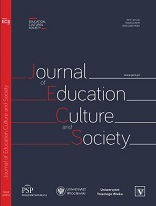USING EDUCATIONAL MARBLE GAMES IN GERMAN LANGUAGE TEACHING
USING EDUCATIONAL MARBLE GAMES IN GERMAN LANGUAGE TEACHING
Author(s): Hasan CoşkunSubject(s): Foreign languages learning
Published by: Fundacja Pro Scientia Publica
Keywords: kitchen appliances; teaching German as a foreign language; educational marble game; exercise types; implementation
Summary/Abstract: The aim of this article is to show how German students can be motivated by learning games. Apart from the development and didacticisation of the learning game “Marbles”, the attitude of Turkish families and language teaching educational establishments and the support of the DaF lessons by German mediating institutions in Turkey will be considered. The attitude of Turkish families to learning foreign languages is mostly positive. Turkish educational authorities and those responsible for education take various measures to expand foreign language teaching availability in the schools. German institutions which provide teachers (Goethe-Institut, ZfA, DAAD) promote the improvement of German teaching in Turkey. Nevertheless, the quality of German teaching is not satisfactory mostly because the available teachers are not adequately qualified, teacher training is remote from practice, the quality of text books and teaching materials, the traditions of learning, the excessively large classes, inadequate learning environment (language cabinets and equipment), the nature and method of central examinations (multiple choice) and their significance in the Turkish educational system. In the long-term, this leads to frustration in both teachers and students. The Turkish educational authorities initially took measures to expand the availability of language teaching in the course of harmonisation of the Turkish educational system to that of the EU e.g. the introduction of a second foreign language. German mediating institutions ensure reasonable further training for teachers locally and in Germany and support the creation of teaching materials etc.
Journal: The Journal of Education, Culture, and Society
- Issue Year: 6/2015
- Issue No: 1
- Page Range: 167-184
- Page Count: 18

